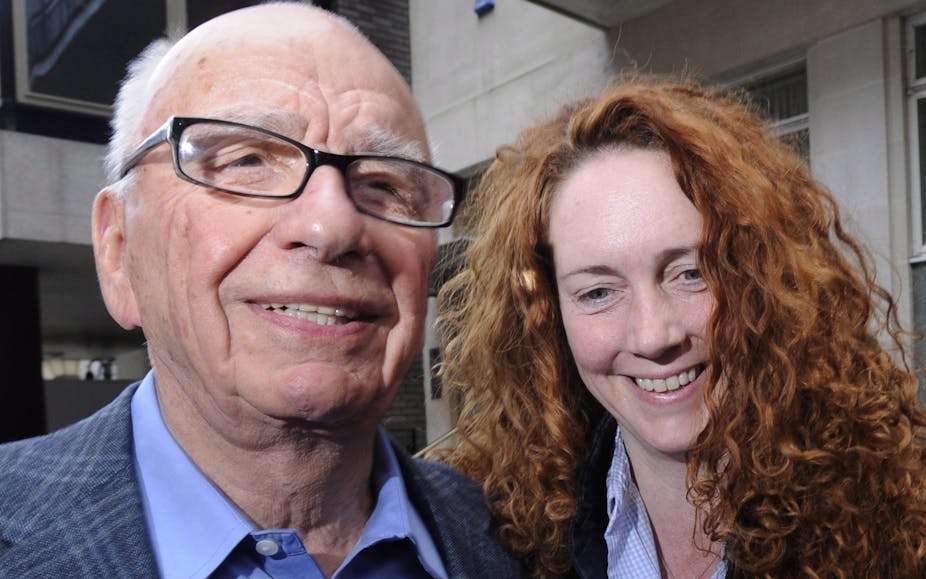News Corporation chairman Rupert Murdoch has survived a push by shareholders to have him removed as chairman, arguing the media giant has seized on the serious wrongdoing that occurred at some of its publications as an opportunity to strengthen governance.
Speaking overnight at the News Corp Annual General Meeting, Mr Murdoch said News Corp employees had had to work “very hard” to make amends for the phone hacking scandal that led to the closure of News of the World and the arrest of 60 people, including some employees of News Corp.
“As you know we never thought of ourselves as a conventional company,” Mr Murdoch said. “We focus on writing our own future, and in doing so we have transformed the media landscape.”
He reiterated that News Corp had imposed strict uniform policies with central oversight, improved employee training, and imposed more auditing and testing so that it could fix any problems by identifying them early.
Mr Murdoch’s comments came shortly after ABC managing director Mark Scott was quizzed in Senate Estimates hearings about the application of proposed new media regulation to the ABC.
Mr Scott reiterated ABC Chairman James Spigelman’s comments criticising the Finkelstein report and its suggestion that the same body be responsible for moderating and responding to complaints about the ABC and commercial media.
“There are a variety of standards and responsibilities that we have that commercial media doesn’t have,” Mr Scott said.
“We can see from media practices around the world when the simple focus is around increasing circulation, increasing ratings, increasing ad revenues - what can happen to your editorial standards if that’s your mere focus can be cataclysmic.”
Mr Scott added that while a one-size-fits-all approach sounded good, in practice it could be too simplistic.
“There is no need to impose that standard because those safeguards and responsibilities
Earlier Mr Scott was grilled by Senator Eric Abetz about tweets made by ABC employees that were critical of Tony Abbott. Mr Scott said he would review the tweets against the ABC’s social media policy to establish whether the policy had been breached.
Mr Scott said while he wasn’t begrudging the process of being questioned at Senate Estimates, he would welcome the day when Channels 7, 9 and Ten had to appear in the same forum and be held account to their editorial standards.
The true test of corporate governance is whether a commercial media organisation is able to criticise its own executives and peers, said Bruce Arnold, lecturer in law at the University of Canberra.
He cited ABC program Media Watch as an example where the ABC criticised its own.
"We’re not seeing that in the private sector organisations, and we’re less likely to see that because private sector organisations are being driven by private equity.”
The commercial pressure on television and radio networks in recent months has been intense, and Mr Arnold said these organisations had not done much to encourage trust.
“In this environment, issues of governance are really critical.
"They say: "Trust us, we’ll not only be great corporate citizens, but also great managers”. They’ve been neither.“
Mr Arnold added that there needed to be greater transparency from commercial media organisations to ensure conflicts of interest were addressed and governance polices were translated into real-life practice.
"It’s whether you live the statements that come from the 40th floor, or whether they are just rhetoric.”

